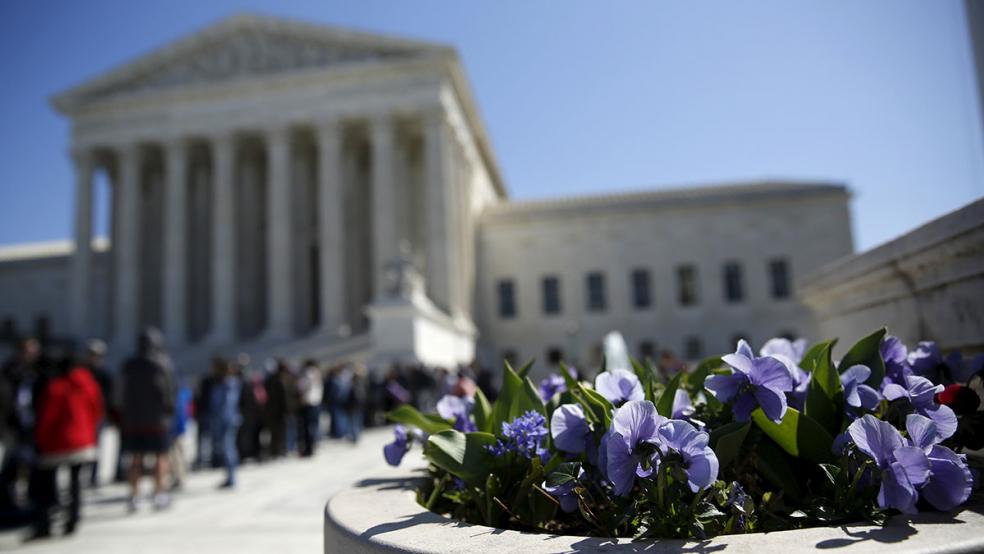The Supreme Court on Tuesday struck a blow against a controversial reading of the Clean Water Act by the Army Corps of Engineers, with a ruling that found the Corps’ “jurisdictional determination” that it has regulatory authority over a specific area of wetlands is subject to judicial review.
A provision of the Clean Water Act regulates pollution of the “waters of the United States” and gives the Corps the authority to make a determination regarding what wetlands do and do not meet that description. The “waters of the United States” provision has been highly controversial, with advocates for property owners arguing that it is ripe for abuse.
Related: Trump Hits the Panic Button at the Hint of a Third Party Run
During the Republican presidential primary, Florida Sen. Marco Rubio blasted the law, claiming that it covers “water barely bigger than a puddle”. The government hotly disputes that claim, but it has resonated with many who feel the federal government regularly overreaches with regard to environmental regulation.
The case that the Supreme Court ruled on Tuesday, Army Corps of Engineers v. Hawkes Co., involves three businesses seeking to develop land in Minnesota that, according to the Corps of Engineers, is protected under the CWA because it has “a significant nexus” to the Red River of the North, a body of water 120 miles away from the site in question.
The developers went to federal court to challenge the Corps’ jurisdictional determination and were told that the court did not have jurisdiction over the Corps’ decision because it did not constitute a “final” action. That claim relied on an argument by the Corps that the company could still choose to fight an enforcement action, if one was brought, or could go through a lengthy permitting process, whose outcome was largely predetermined.
In a big win for the appellants, the court determined that the courts do, in fact, have the jurisdiction and authority to review the Corps’ jurisdictional determinations.
Related: The Libertarian Johnson-Weld Ticket Is Bad News for Trump
“Today’s ruling marks a long-awaited victory for individual liberty, property rights, and the rule of law,” said attorney M. Reed Hopper, of the Pacific Legal Foundation, which represented the appellants. “For more than 40 years, millions of landowners nationwide have had no meaningful way to challenge wrongful application of the federal Clean Water Act to their land. They have been put at the mercy of the government because land covered by the Act is subject to complete federal control. But all that changed today ... Everyone who values property rights and access to justice should welcome this historic victory.”





